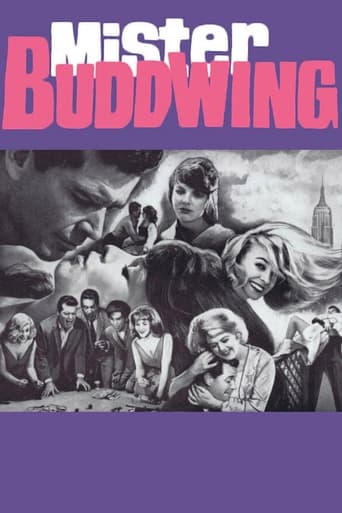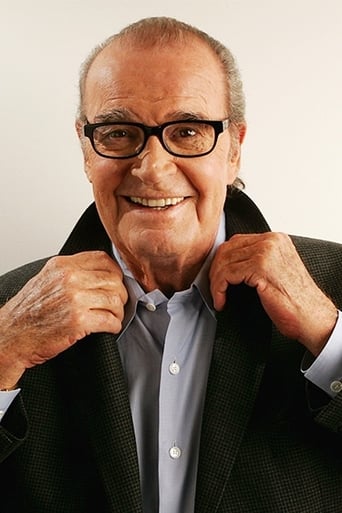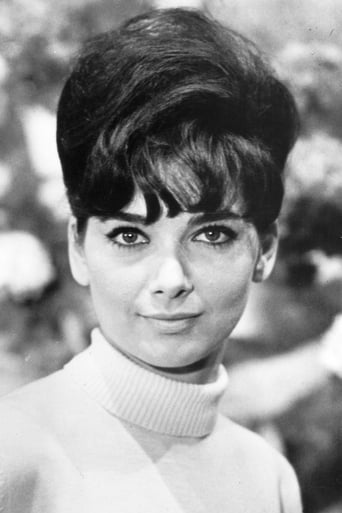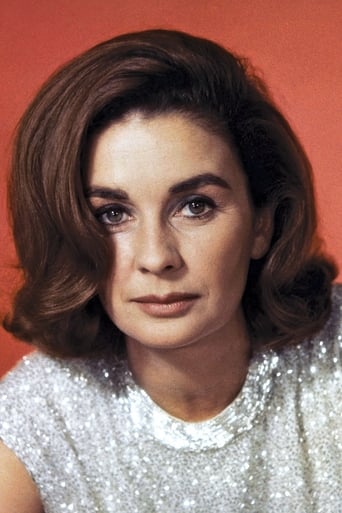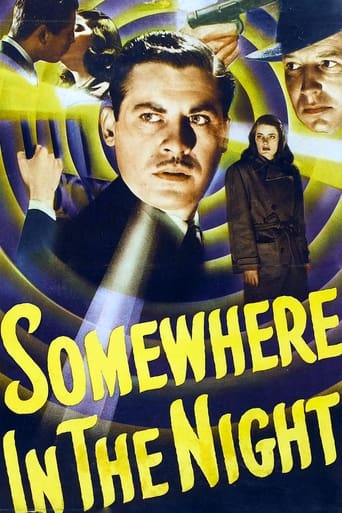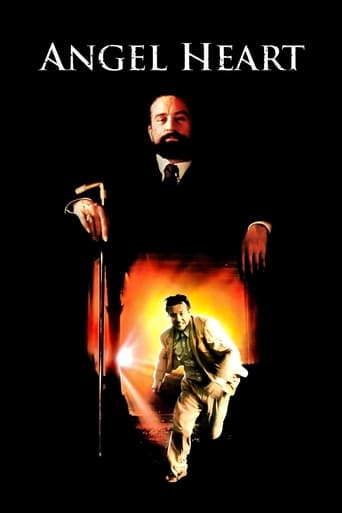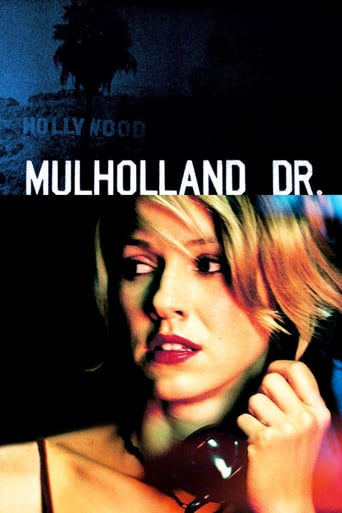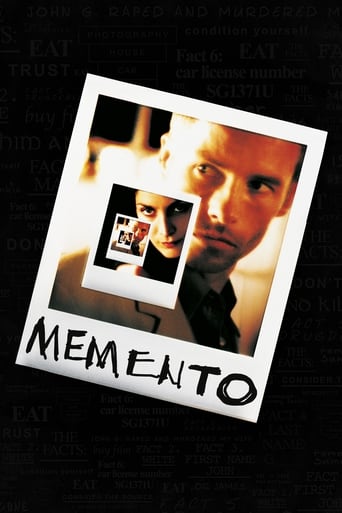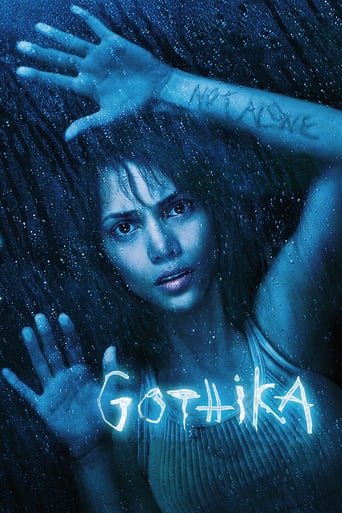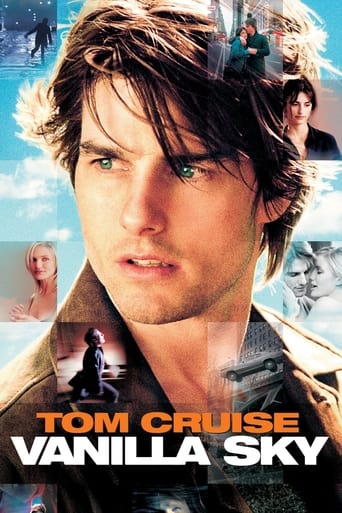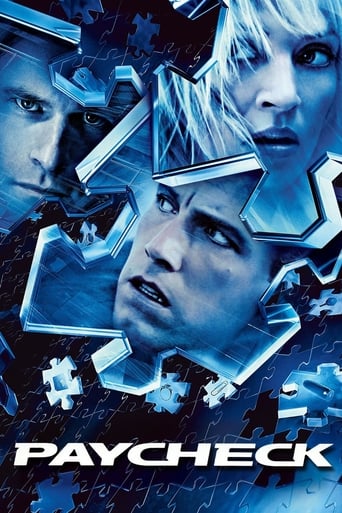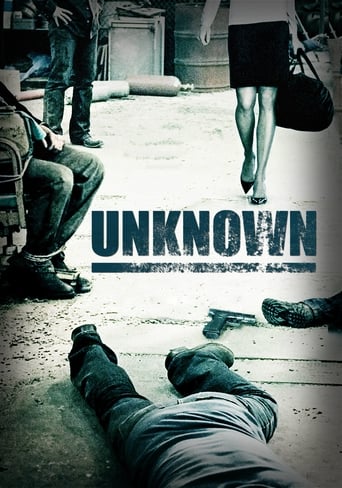Mister Buddwing (1966)
An amnesiac wanders the streets of Manhattan, trying to solve the mystery of who he is.
Watch Trailer
Free Trial Channels
Cast


Similar titles
Reviews
You won't be disappointed!
just watch it!
The movie's only flaw is also a virtue: It's jammed with characters, stories, warmth and laughs.
Blistering performances.
I love James Garner, but he's miscast in this stilted movie about a man who's lost his memory wandering the streets of mid-sixties Manhattan. He awkwardly confronts random young women whom he confuses with a woman he knows named Grace. These startled women, played by Katharine Ross and Suzanne Pleshette. do a a great job, but they're too young for him and his fixation on these much younger women make him look creepier than the film intended. It's only when he meets a woman who accosts him, played by an older and more appropriate Jean Simmons, that he connects with his true identity. As another reviewer here noted, Garner is out of his natural range as an actor in this picture. Watching the film now, the real attraction is that it's shot on location in Manhattan, during a time when the city was sinking into the urban malaise that would affect it until the mid-nineties. Mister Buddwing's Manhattan is dingy and affordable and accessible to ordinary people in a way it isn't today. There are no steel and glass buildings blocking the sky. It's a more human place.
Oscar-winning film director Delbert Mann ( The Outsider (1961), Marty (1955) - TV, Playhouse 90, Goodyear Playhouse, Omnibus, Producers Showcase, Playwrights '56, Philco-Goodyear Television Playhouse, Schlitz Playhouse, Masterpiece Playhouse) adapts Evan Hunter's novel "Buddwing" and with the cinematography of Ellsworth Fredericks (Invasion of the Body Snatchers (1956), Seven Days in May (1964)) and a great original jazzy score by Kenyon Hopkins (composer for Baby Doll (1956), 12 Angry Men (1957), The Fugitive Kind (1959), The Hustler (1961), to create a stylized "Jazz Noir". Filming in 1965, Mister Buddwing is one of those lost films that are on the cusp between Film Noir and Neo Noir. Sort of a psychological noir rather than a "crime" noir. A melancholy film that plays with time, space and your mind as the various vignettes overlap it's eerie and noirishly suspenseful, but at times darkly comic. It requires multiple viewings to fully comprehend.The film stars James Garner in a role that really displays his acting chops in a performance far removed from his wisecracking Bret Maverick (disregard his contention that this is his worst film, he sells himself way too short). Garner plays one of Film Noir's touchstone tropes the amnesiac. The film opens with an unfocused shot of the sky sliced diced and fragmented by bare branches . As the frame focuses and our view pans we see the branches are trees, we see buildings, and Central Park at the corner of 59th and 5th. In an homage to Robert Montgomery's "The Lady In The Lake" and the beginning of "Dark Passage", the film displays an intriguing POV sequence that begins when hands "rub" the eye of the camera, it also begins a faint jazz heartbeat increasing in tempo and volume as "we" the character sitting on a park bench search frantically through out suit pockets (for identification) combing out a train timetable, a scrap of paper with a name Gloria and phone number and some pills. A ring on his finger has an inscription "from G.V.". The POV sequence continues until we stumble into a mirror at the Plaza Hotel when Garner is revealed. He has neither money or ID but he does remember the name of a woman, a woman named Grace.Using a lobby phone and giving a fictitious room number he calls Gloria (Angela Lansbury) to try and discover his identity. Gloria a divorced floozy with a heart of gold, takes pity on him and gives him money so that he can find himself. So begins his jazz odyssey through the streets of New York. In his quest for Grace, Garner meets three women, Janet (Katherine Ross), Fiddle (Susanne Pleshette), and The Blonde (Jean Simmons), each of the women he at first mistakens for Grace. So at first we see Garner interact with each woman in their true identities and at some point they become a vivid flashback to his relationship with Grace at different stages of his life with Grace, the starry eyed young love stage, the struggle with real life, and the consequences of wrong decisions made. All this makes the viewer a little disoriented, a little lost, exactly how James Garner's character feels throughout the movie.The film features the neighborhoods of midtown Manhattan, Times Square, and the Queensboro Bridge as its backdrop creating a cinematic memory link to classic Noirs, The Sweet Smell Of Success, Kiss Of Death, Killers Kiss, The Unsuspected. Wonderful melancholy jazz compositions accompany Garner as he wanders the streets.All the three actresses are outstanding in their dual rolls.Watch for Joe Mantell's cab driver character's hilarious monologue then pay attention for its echo with the 2nd cab driver Billy Halop, the original leader of the Dead End Kids. Watch for Nichelle Nichols appearance as a dice player, and Jack Gilford's interaction with Garner in a lunch counter.Available on DVD from the Warner Brothers Archive Collection. 9/10
I only recently caught this on TCM cable the other day. After watching it twice (and yes, it really does merit multiple viewings) I asked myself, "where has this little gem been hiding?" This movie came out in 1966, and this is the first time I've ever seen it.Jim Garner is cast somewhat against type as the not-so-granite character we've come to know and love: here, he plays a man suffering from a bad case of amnesia. He wakes up on a park bench in New York City and, armed with only a few scant clues found in his pockets - a scribbled phone number without a name, some pills, a train schedule - he starts on a scatter-shot quest through the edges and byways of New York City in an attempt to discover who he really is.The movie has some interesting vibes going on: it's edgy, dark and suspenseful, also eerie and at times darkly comic. The plot is a bit convoluted, with odd flashback scenes juxtaposed with odd events and characters that occur in present time. If all of this makes the viewer a little disoriented, then the director has done his job well, because that is precisely how James Garner's character feels throughout the movie, right up until the very end.Along the way he encounters a colorful batch of characters, each of whom directs (or misdirects as the case may be) our hero to his final destination and ultimate discovery of who he really is, and how he came to end up on a park bench in New York. The interplay between Garner and these assorted characters - who play like a sort of human sampler of New York City - is what makes the movie so worthwhile. There's lots of interesting dialog going on, enough to make it worth your while to watch the movie several times.Nicely filmed in black and white, with an excellent supporting cast and excellent soundtrack, this is an engrossing and fast-moving story that never bogs down, and turns out to be one of the best offbeat movies I've seen in a long time. Highly recommended.
This film would have been OK if it had been played for laughs but someone wanted to make a "serious" movie and it ended up a pretentious piece of crap. What were they thinking? When I saw the cast I was excited, three delicious babes and Maverick himself. Poor Jim Garner, his emotions ran the gamut from A to B. In fairness to him, however, Laurence Olivier could not have done much with this part. The plot was confusing and the film so disjointed that it was impossible to follow. Did the movie have a message? The scene where Garner finds the razor and blood all over the sink must be symbolic of a person who has seen this movie. As Tallulah Bankhead once remarked about a play,"There is less to this than meets the eye."

